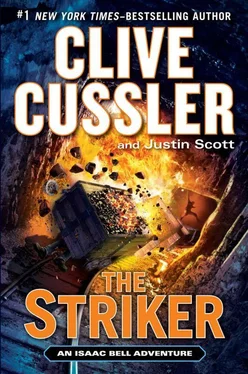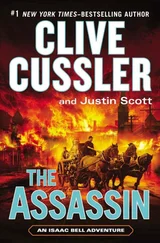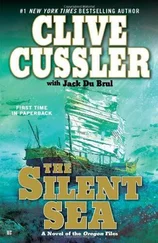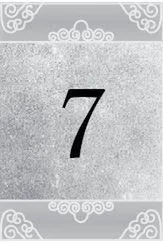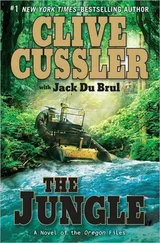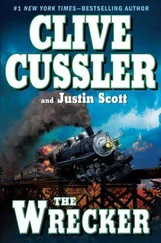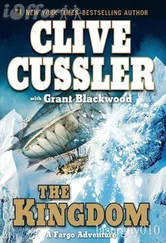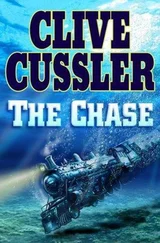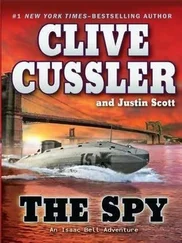Ben Lent was short and powerfully built. The scars on his cheeks looked more likely from bullets than fists. He greeted Wish warmly, kidded him about the coffee cup, “Where a glass ought to be,” and shook hands hello with Bell. And with Ben Lent, just off the last train of the day, they hit the jackpot. Bell described the necklace that Laurence Rosania was supposedly intending to steal.
“Mrs. Stambaugh.”
Isaac Bell and Wish Clarke exchanged glances.
“Mrs. Stambaugh ?”
“ Rose Stambaugh?”
“The lady herself. And still quite a looker, I don’t mind saying. She stopped personally in the car to ask me to keep a special eye on it.”
Wish grinned at Isaac Bell. “Doubt your Society page Furrier would have tumbled to Mrs. Stambaugh.”
Bell agreed. Mrs. Stambaugh’s jewelry-shopping expedition to New York would never make the Society pages of either city. She could easily afford the expensive necklace that attracted Rosania, but her vast fortune was neither inherited nor earned in the conventional manner, as Rose Stambaugh had been for forty years the greatly admired proprietress of the finest brothel in Chicago.
“That must be some necklace for Rosania to risk a lynching if he’s caught,” said Wish. “Everyone loves Mrs. Stambaugh — cops, judges, politicians, even the Cardinal. You remember, Isaac. I took you to meet her once.”
“I sure do.” Bell recalled a shapely little blonde of uncertain years with an hourglass figure, an arresting smile, and a welcoming glint in her fiery blue eyes.
“When was this?” Bell asked Lent.
“Last week.”
Bell said to Wish Clarke, “There’s a charity ball for the news boys tomorrow night at the Palmer House. Do you think the bluenoses will let her into that?”
“They’ll take her money anywhere since she retired.”
“Does she still live on Dearborn?”
“Moved to a mansion on the North Shore.”
* * *
The two detectives rented a Baker Electric Runabout and found the new Stambaugh mansion just as night fell. It was enormous, fenced by heavy wrought iron on three sides and open to Lake Michigan on the fourth. Golden light streamed from many windows, and music wafted on the wind blowing off the lake. They parked the Baker on the darkest stretch of the street in a space between an Aultman Steamer and a long five-passenger Apperson Tonneau and watched from the shadows of the leather top. Every half hour, one of them took a walk around the neighborhood.
A policeman came along and peered in the car.
“Van Dorn,” Wish told him and slipped him three dollars.
Buggies clip-clopped past, and occasionally a grand carriage rolled behind a team of four. Another cop stopped and peered in. Wish gave him three dollars. More carriages passed, stopping at parties at other mansions along the street. Wish expressed the concern that Rose Stambaugh was wearing her new necklace to host a party, but Bell assured him, judging by the Aultman and the Apperson, that her gathering tonight was not big enough to rate the display and it would be locked in her safe, awaiting Rosania.
“She’ll save it for the Palmer House.”
A third cop came along. Wish gave him three dollars. Bell worried that the bribe seekers would scare Rosania off. When a fourth appeared soon after, he said, “I’ll do this one.” He plunged his hand deep in his pocket, sprang from the Baker.
“What do we have here?” asked the cop, a tall, jowly man with a walrus mustache hung like a Christmas ornament on a bad-tempered face.
“A twenty-dollar gold piece,” said Isaac Bell, holding it up. “What’s your name?”
“Muldoon,” the cop lied.
“Keep ten, Muldoon. Share the rest with the boys and save them the trip.” He held on to it until the cop nodded, agreeing that he would be the last, and left.
At midnight, the music stopped. Musicians filed out of the Stambaugh service entrance. Three men in dinner jackets exited the front gate, laughing, and piled into the Apperson. A couple left the mansion holding hands, raised steam on the Aultman, and drove away. Lights began going out.
“This is looking like a bust,” Wish muttered.
“I’ll take another look around.”
Bell made sure no one was coming and got out of the Baker. The wind was picking up, getting brisk, and it carried a sound that it took him a moment to place, as it was not a noise he associated with a city street. He darted around the fence and stared at the lake, which was dark but for shipping lights and channel markers. He raced back to the car.
Wish saw him coming and stepped down.
“He came on a boat. I heard the sails flapping.”
Bell and Wish Clarke rounded the corner of the fence and ran along it to the water. The mansion had a dock, and Bell could see a small sloop tied to it with its mast bare.
“He dropped the sails. He’s in the house.”
“That son of gun is quick,” said Wish. “He’ll be in and out while most safecrackers would still be building their nerve.”
They climbed the iron fence and found a spot in the shrubbery from where they could watch both the house and the boat. Thirty minutes passed. Bell began to get anxious. “Wish, cover the front door in case he leaves on foot.”
Wish hurried to the street.
Bell kept watching. Moments later, a shadow emerged from a second-story window and descended the back wall of the mansion.
Hand over hand, Laurence Rosania went down a drainpipe as agilely as a spider. Ducking low, he crossed the lawn and onto the dock and knelt to untie the little sailboat’s bowline. Suddenly, he froze, his eyes locking on the front deck where he had lowered the foresail. The sail was gone.
Before the safecracker could stand, darkness closed in on him. Wet, mildewed canvas covered his head and wrapped his arms and legs, pinning them. The next thing he knew, a very strong man was picking him up and carrying him somewhere.
* * *
Despite fifteen years away in New York, Henry Clay had Chicago roots that still ran deep. Friendly with corrupt cops and gangsters who had moved up the ranks, and generous with Judge Congdon’s money, he had kept tabs on Isaac Bell since Joe Van Dorn’s favorite stepped off the train at Union Depot. The seasoned men working for him recognized trouble in the formidable Wish Clarke and operated with appropriate caution. So far, at least, neither Van Dorn had spotted them.
Clay had expected Bell would visit Jim Higgins’s union hall, if only as an excuse to call on Mary. But the reports of Clarke and Bell standing drinks for express car messengers was a puzzle. Train robbers were known to try that gambit, but the detectives’ motives were not as obvious.
Clay had paid a savvy plainclothes police detective to nose around Little’s Exchange, where Wish Clarke spent much of the day. The police dick coaxed one messenger into revealing that Clarke had been inquiring about jewelry purchases in New York. Clay racked his brain.
What in hell? Were the Van Dorns looking to steal jewels? Of course not. That was ludicrous. Were they tracing contraband? No. United States Customs had their own investigators, and, besides, Isaac Bell was still working on his coalfield case.
Clay had still been pondering the jewel connection when a shadow he had set on Bell and Clarke reported that they had driven an auto up to the North Shore and parked outside Rose Stambaugh’s new mansion. A moment later it had struck him: Newport . The Van Dorns were even sharper than he gave them credit for and he was suddenly at risk of being exposed.
He had summoned the highest-ranking policeman in his pay.
Unwrapped from the sail, Laurence Rosania had recovered his equilibrium quickly, brushed off his dinner jacket and straightened his collar. He looked about the windowless room Bell and Wish Clarke had taken him to and concluded there was no escape until they were ready to let him go. That the Van Dorns wanted something from him was very good news, and he had high hopes of getting out of this mess without going to prison. That Wish Clarke was one of them meant he would be treated fairly as long as he did not make the mistake of underestimating Clarke’s intelligence. The handsome young fellow with him who explained what they wanted conducted himself like a gentleman, and soon all three were on a first-name basis.
Читать дальше
